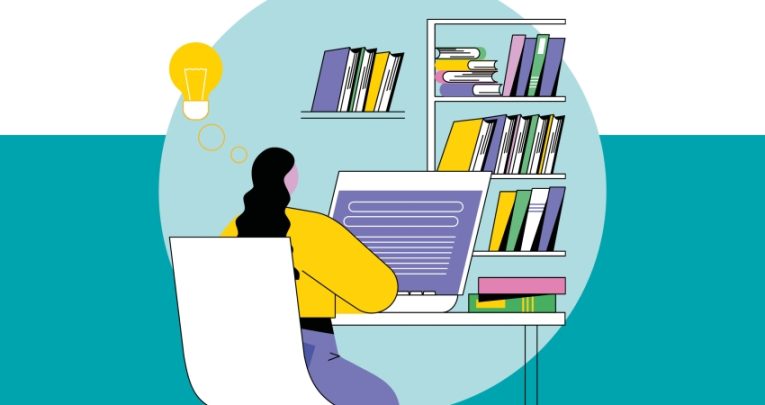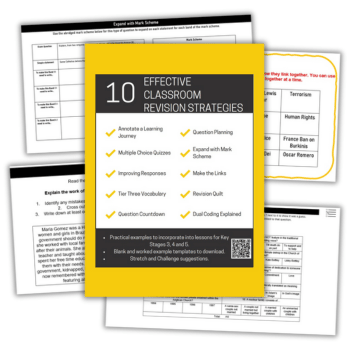Metacognition – Help your students build independent study habits

Hannah Heron looks at how we can employ metacognitive strategies to help pupils build robust independent study habits

Preparing for GCSE assessments isn’t easy. It requires students to exercise self-discipline and harness an array of effective independent study habits – yet the problem, as every teacher knows, is supporting them in building these metacognition habits to start with.
The bad news is that there’s no easy or quick fix. Students don’t become independent learners automatically. It takes time, effort and teacher investment – but research into metacognition and self-regulation can at least suggest how we might approach ingraining such skills in our daily classroom practice.
Making the implicit explicit
The EEF’s ‘Metacognition and self-regulation’ guidance report cites research from Barry Zimmerman on effective strategies for independent learning, which include:
- Setting specific short-term goals
- Adopting powerful strategies for attaining those goals
- Monitoring performance for signs of progress
- Restructuring one’s physical and social context to make it compatible with one’s goals
- Managing time use efficiently
- Self-evaluating one’s methods
- Attributing causation to results and adapting future methods
This list of strategies will be familiar to many teachers, but they must be contextualised or translated according to subject-specific study tasks if they’re to be made real for students.
Pre-flight metacognition checks
Before students can use independent study habits to their advantage, they need to know what they look like. To that end, teachers can plan in time for students to monitor their preparation progress. This might involve discussing their revision plan, or study plan for GCSE coursework.
Zimmerman’s point about monitoring performance could, for example, take the form of a ‘Pre-flight checklist’ for a student’s revision plan. If used daily by students, this could help them manage their time use more effectively and self-evaluate their methods more reliably.
There are two key strategies teachers can employ when preparing their pupils for assessments:
1. Modelling the actions of expert learners via ‘Think alouds’
Thinking about how we, as expert learners, would approach a task, as well as the knowledge and strategies we would bring to it, can help to make the implicit explicit when modelling.
‘Think alouds’ enable teachers to narrate their thought processes to students. If, for example, we were to explain the reasons why we are choosing a particular planning strategy for writing a timed essay, pupils may start to make more informed decisions on the most effective strategy they could choose when faced with a similar learning task themselves.
We might also ‘Think Aloud’ various options. This might be using a timer, or Zimmerman’s ‘restructuring’ of the space. This might involve taking yourself off to the library to do some essay writing.
2. Plan the teaching of effective study strategies into the curriculum
Teaching students powerful study strategies is key to developing strategic and independent learners. To ensure students can approach independent learning and exam preparation with confidence, it’s important to build in the teaching of study skills, alongside subject content, as part of your curriculum design.
Students need explicit teaching of the ‘how’, ‘when’ and ‘why’ in order to use strategies like self-testing with flashcards. Students will also need training to pick the right strategy for the right assessment.
For instance, using flashcards to prepare for an extended essay assessment may prove ineffective in comparison to strategies linked with developing a clear argument, or similar.
What you can do
- The 7-step model from Recommendation 2 of the EEF’s ‘Metacognition and self-regulated learning’ guidance report can be used to explicitly teach new strategies. At the same time it supports teachers in modelling their own metacognitive process.
- Schools seeking to develop students’ metacognition may wish to shrink the focus. Begin with one or two initial strategies. Wait until these are fully embedded, then move on to others intended to foster metacognitive thinking.
Hannah Heron is a content specialist at the Education Endowment Foundation.











